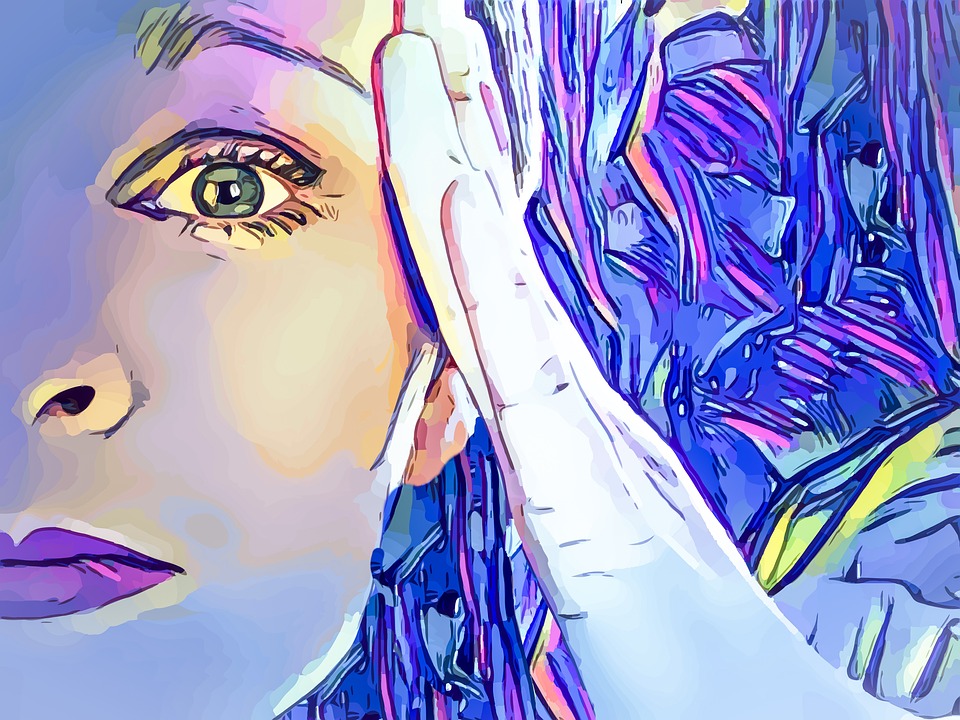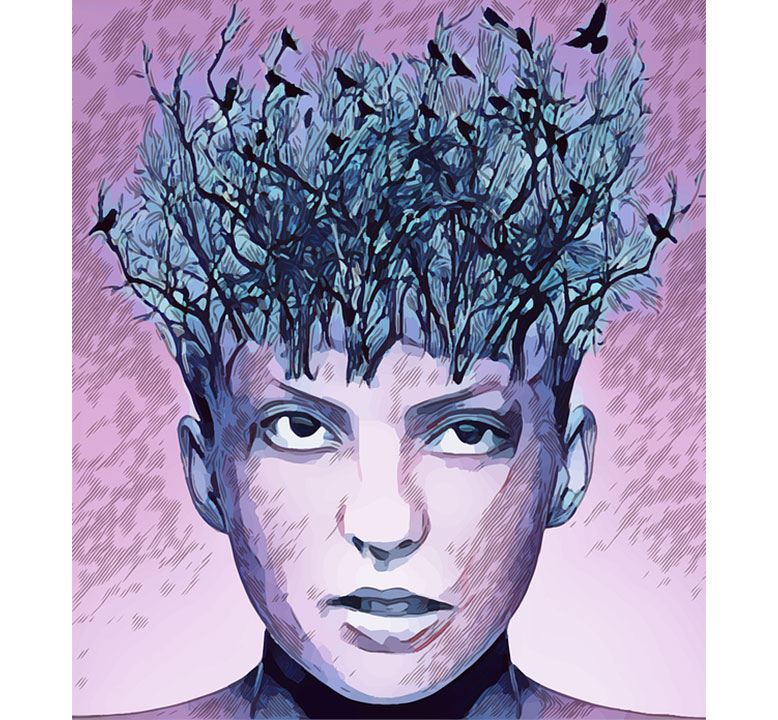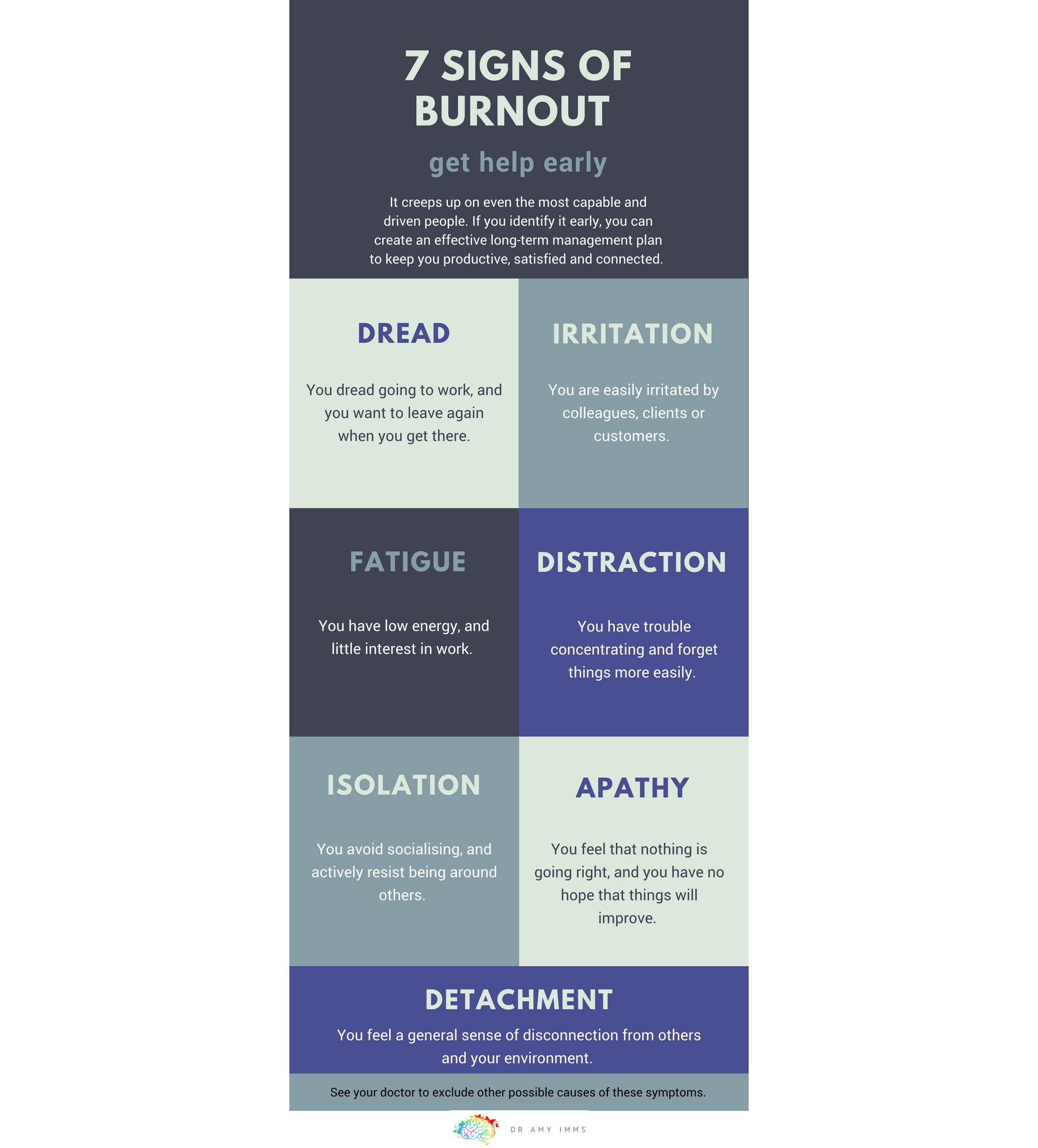7 signs of burnout
How to spot the early signs of burnout and what to do to avoid reaching crisis point.

Daily design news, reviews, how-tos and more, as picked by the editors.
You are now subscribed
Your newsletter sign-up was successful
Want to add more newsletters?

Five times a week
CreativeBloq
Your daily dose of creative inspiration: unmissable art, design and tech news, reviews, expert commentary and buying advice.

Once a week
By Design
The design newsletter from Creative Bloq, bringing you the latest news and inspiration from the worlds of graphic design, branding, typography and more.

Once a week
State of the Art
Our digital art newsletter is your go-to source for the latest news, trends, and inspiration from the worlds of art, illustration, 3D modelling, game design, animation, and beyond.

Seasonal (around events)
Brand Impact Awards
Make an impression. Sign up to learn more about this prestigious award scheme, which celebrates the best of branding.
Hands up if you are guilty of working too hard. We all know that a lack of work-life balance can make you tired. But what if your tiredness becomes something more?
Burnout occurs when normal levels of tiredness cross over into something more serious. You've been running on adrenaline, worried about stopping in case everything comes crashing down around you. Your lack of energy means mornings spent prising your eyes open and taking freezing cold showers to wake yourself up. Your creativity has been sucked dry, design thinking has gone out of the window. You feel the stress building but you've been pushing it down.
As it's Mental Health Awareness week, we are taking advice from Dr Amy Imms and shining the spotlight on self-care by learning to spot the signs of burnout before they take hold. Dr Imms has created an infographic explaining the seven signs of burnout to help you to recognise when extreme levels of exhaustion become the more serious medical condition, burnout.
What is burnout?
Burnout is the last stage of chronic stress. It makes you more susceptible to illnesses as extreme stress suppresses your immune system, and can give way to serious symptoms including panic attacks, depression and even suicidal thoughts. Burnout happens when your brain has been receiving stress signals day after day for an extended period of time, and nothing has been done to alleviate those feelings.
We wouldn't dream of skipping our car's MOT each year in case of problems under the hood, but how often do you check in with yourself to make sure everything is running smoothly? It's vital that we all regularly check in with the effects of our work and life patterns to give ourselves the best chance of staying healthy and happy. Otherwise, we too are liable to breakdown.
Here we will examine the seven signs of burnout as identified by Dr Imms, and explore some strategies to stop yourself crashing long before you reach crisis point.
The 7 signs of burnout
01. Dread
Those butterflies in your tummy feel less like a fluttering of anticipation and more a churning sickness that intensifies every time you think about going to work. That's when you know there's something more going on than a healthy dose of Sunday-night-itis.
Daily design news, reviews, how-tos and more, as picked by the editors.
Often the thought of going to work is worse than the reality and once you get into the swing of the week, your creative juices start to flow and you realise you do actually quite enjoy what you do. But if you find that feeling of dread is continuing throughout your working day, it is time to tune into what your nervous system is trying to tell you.
02. Irritation

Irritation is a pernicious feeling that can totally take over your interactions with the people around you. It will affect the way you receive communication, and the way you respond, which means your usual professional identity has been disrupted.
If you think your feeling of irritation over Susan's account of her weekend, or Bob's inability to get to the point is disproportionate, then take a step back and recognise it as a sign.
03. Fatigue
Physical fatigue manifests in fuzzy-headedness, heavy limbs and a total lack of spatial awareness: it is Not Pleasant. You feel as if you could put your head down on your keyboard and be sound asleep in seconds and you are bumping into things all over the place.
Mental fatigue is stripping any sparkle and enthusiasm you had for your career or the working day. You are pretty sure you used to have some creativity in there somewhere, or why would you be in this industry? But at the moment you can't muster up any new ideas and you are taking a back seat on projects you used to excel at.
04. Distraction

Sorry, what did you say?
If you're finding yourself drifting off into your own thoughts and unable to focus on the task, or people, in front of you then you might need to consider the reasons. Perhaps you are taking procrastination to a new level and an hour regularly flies by without you noticing when you used to enjoy knuckling down to the work on your to do list.
Procrastination is a totally normal part of the process for some creatives, but be honest with yourself, and if you think it's become something more serious then try to take note.
05. Isolation

Think back to the last time you felt excited about socialising. Maybe your WhatsApp stream is full of polite excuses or outright avoidances. Or perhaps you have been dragging yourself along to social outings out of a sense of duty and bowing out at the first opportunity. If this is unusually introverted behaviour for you, and it coincides with other signs on this list then you might need to consider why it's happening.
06. Apathy
Nothing is going well for you. And you don't expect that to change any time soon. You feel a numbness, everything is bleak and you don't have the emotional tools to make changes to improve things.
These thought processes, synonymous with depression, signify a misfiring within your psyche. You need to make some changes to bring back the motivation to take control of your life, and the hope that things will get better.
07. Detachment

Detachment is that floaty feeling you get when you feel like you're not quite present. You can't quite connect to the people around you or with the work you are trying to focus on. Detachment is a common side-effect of sleep deprivation and can also be a symptom of extreme stress.
What can we do to stop burnout?
01. Schedule real relaxation

If you've noticed some of these signs are beginning to creep in, it may be enough to simply prioritise your time for self-care. It is amazing how much a regular slot of me-time can do for your wellbeing.
You could schedule in a weekly relaxation activity like a walking group or a massage and make yourself stick to it. Or maybe a fresh, new, just-for-you-challenge like an art class would do the trick. Even a daily 20 minute bath with no distractions can do wonders if you do it (buzzword alert) mindfully.
02. Go offline
Remember when only MSN Messenger could follow you home? And you even had to share the dial-up connection with your landline so its influence was limited? In this digital, global age there is no escaping the demands of others. We sleep with our phones close and use them for tasks as simple as checking the time, which means there is literally no switching off.
Plan to switch off all communication after a certain time of day, and go old-school with tech (dig out an old alarm clock!) to disrupt your reliance on your phone. Turn off the TV and pick up a book, or open your sketchpad. The lack of blue light will calm your stress and having time away from the world will help you to recharge.
03. Escape the grind

Book a holiday. This is not so easy for freelancers we realise, but still totally necessary for good mental health. Even if you can't have a total work vacation, and you are able to work remotely, head off to somewhere you want to visit and spend the time as a working tourist. A change of scenery can be invigorating.
If things are becoming untenable and you don't have holiday left, talk to your boss to see if there is any flexibility with remote working. It's amazing how understanding people can be if you are honest. If all else fails, head to your GP and take a period of sickness absence. Your health is paramount and its better to take the time preventatively than wait for a crash.
04. Open up to others
Lots of us try to handle it all ourselves and hate to rely on others for help. But those around us are often glad to help where they can. Don't be afraid to let it all out to loved ones, and keep colleagues in the picture too so that they can take some of the strain. It really does feel better to let others in both practically and emotionally, and building a support network is key to mental wellbeing.
Spending more time socialising can help enormously. Taking your mind off work and feeding from the positive energy of others can seriously change your outlook. Try to spend time with the positive people in your life, and avoid negativity if you can.
05. Say no

It's seems simple but it's hard to say no whether it be to invitations, work opportunities or extra duties dumped on our desks. But overload means you won't do your best. Embrace the power of no, and own your right to say it.
06. Make a change
Maybe after a lot of soul searching you have realised that your burnout is situation-specific and it's time for a new start. Brainstorm your options, with no pressure to follow through, and see if anything lights a small fire inside of you. Then take steps to action your ideas. Don't feel overwhelmed by the pressure to do it all at once, you have plenty of time to work it out, and sometimes just having that option there is enough to make everything seem brighter.
Related articles:

Georgia has worked on Creative Bloq since 2018, and has been the site's Editor since 2023. With a specialism in branding and design, Georgia is also Programme Director of CB's award scheme – the Brand Impact Awards. As well as immersing herself with the industry through attending events like Adobe Max and the D&AD Awards and steering the site's content streams, Georgia has an eye on new commercial opportunities and ensuring they reflect the needs and interests of creatives.

